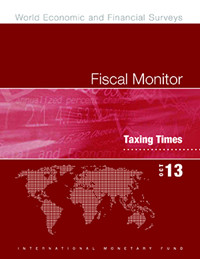Wickens, M. and Polito, V., (2013), “A fiscal perspective on EU sovereign credit ratings: Did the credit-rating agencies get them right?”, VoxEU, 30 October. A good credit rating has become a key fiscal objective, even if it requires austerity when unemployment is high. Recent experience has raised doubts about the sovereign ratings provided by the credit-rating agencies. This column suggests a new way to measure credit ratings based on a …Read More
The ‘Official’ Cost Of Austerity
Wren-Lewis, S., (2013), “The ‘Official’ Cost Of Austerity”, Social Europe Journal, 29 October. Well, not quite, but probably as close as we will ever get. In a new paper, Jan in‘t Veld uses the European Commission’s QUEST model to estimate the impact of fiscal consolidation in the Eurozone (EZ) from 2011 to 2013. The numbers in the table below include spillover effects from other EZ country fiscal consolidations, so they …Read More
Massacre memories: German car sales and the EZ Crisis in Greece
Fouka, V. and Voth, H.J., (2013), “Massacre memories: German car sales and the EZ Crisis in Greece”, VoxEU, 23 October. The EZ crisis increased north-south conflicts between bailout providers and recipients – especially between Germany and Greece. This column shows evidence that political conflict directly translated into losses of market share for German car producers in Greece – especially in areas where German armed forces committed massacres during World War …Read More
A Strategy for Southern Europe
LSE, (2013), A Strategy for Southern Europe, London: LSE !deas. Over the last five years Southern Europe has experienced widespread economic, political and social upheaval of almost existential proportion. Greece, Italy, Spain and Portugal, stricken by the Eurozone crisis and the aftershocks of the Arab Spring, face uncertain futures. This report examines the challenges confronting Southern Europe and seeks to explore the potential benefits the countries of the region could …Read More
In Praise of Debt Ceilings
Sinn, H.W., (2013), “In Praise of Debt Ceilings”, Project Syndicate, 17 October. The wrangling about raising the US government’s borrowing limit – now thankfully over, at least for a few months – underscores the hazards posed by excessive state indebtedness. Governments nowadays are essentially running gigantic redistribution machines that steer funds from taxpayers to transfer recipients and other beneficiaries of public expenditure. The latter permanently ask for more, while the …Read More
On graduation from fiscal procyclicality
Frankel, J., Vegh, C. and Vuletin, G., (2013), “On graduation from fiscal procyclicality”, Journal of Development Economics, 100(1):32-47. In the past, industrial countries have tended to pursue countercyclical or, at worst, acyclical fiscal policy. In sharp contrast, emerging and developing countries have followed procyclical fiscal policy, thus exacerbating the underlying business cycle. We show that, over the last decade, about a third of the developing world has been able to …Read More
The Periphery Six
Wright, T., (2013), “The Periphery Six”, Project Syndicate, 14 October. Cyprus, Greece, Ireland, Italy, Portugal, and Spain share a problem. With massive debt, no control over monetary policy, and no leeway for fiscal stimulus, they appear headed for a lost decade of high unemployment and low GDP growth. Such a path would drain the political establishment of legitimacy and prevent a real recovery in Europe. With structural reforms having proved …Read More
Fiscal Monitor 2013: Taxing Times
IMF, (2013), Fiscal Monitor 2013: Taxing Times, Washington D.C.: International Monetary Fund. Persistently high debt ratios in advanced economies and emerging fragilities in the developing world cast clouds on the global fiscal landscape. In advanced economies, with narrowing budget deficits, the average public debt ratio is expected to stabilize in 2013–14—but it will be at a historic peak. At the same time, fiscal vulnerabilities are on the rise in emerging …Read More
OECD Skills Outlook 2013
OECD, (2013), OECD Skills Outlook 2013: First results from the survey of adult skills, Paris: OECD. Key Findings of the Survey Progress across generations Some countries have made impressive progress over recent decades in equipping more people with better literacy and numeracy skills. Young Koreans, for example, are outperformed only by their Japanese peers, while Korea’s 55 to 64 year-olds are among the three lowest-performing groups of this age. Older …Read More
World Economic Outlook
IMF, (2013), World Economic Outlook, Washington DC : International Monetary Global economic prospects have improved again, but the bumpy recovery and skewed macroeconomic policy mix in advanced economies are complicating policymaking in emerging market economies. Chapter 3 examines the prospects for inflation, particularly because inflation was remarkably stable in the wake of the Great Recession and, in fact, has become less responsive to cyclical conditions. Chapter 4 examines whether today’s …Read More







